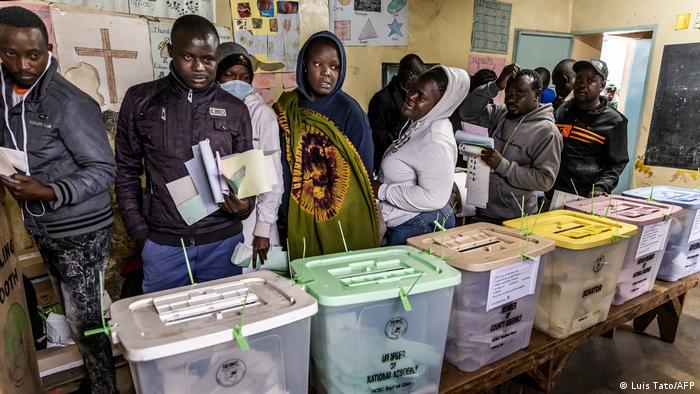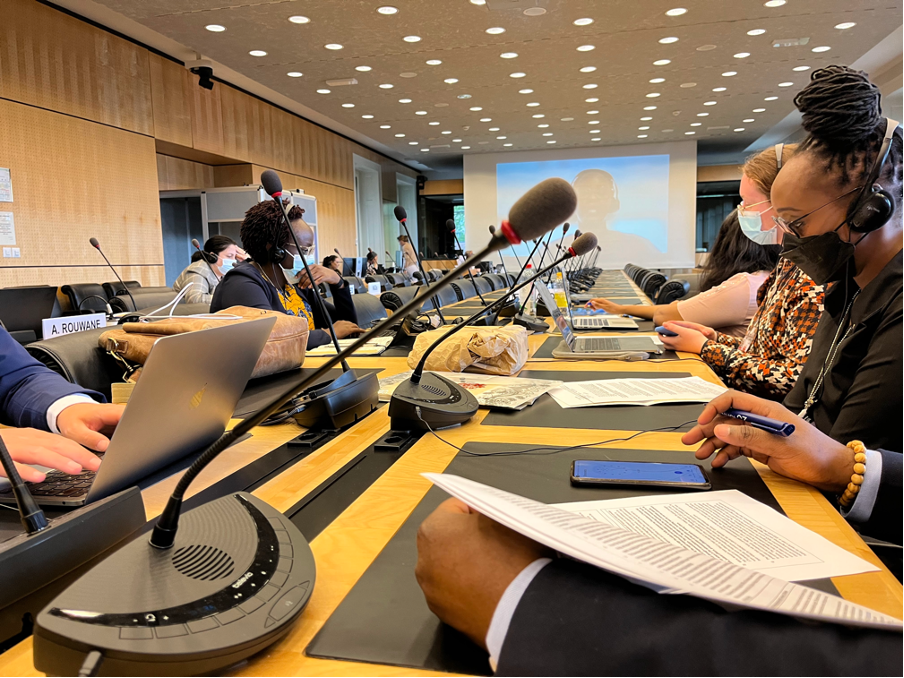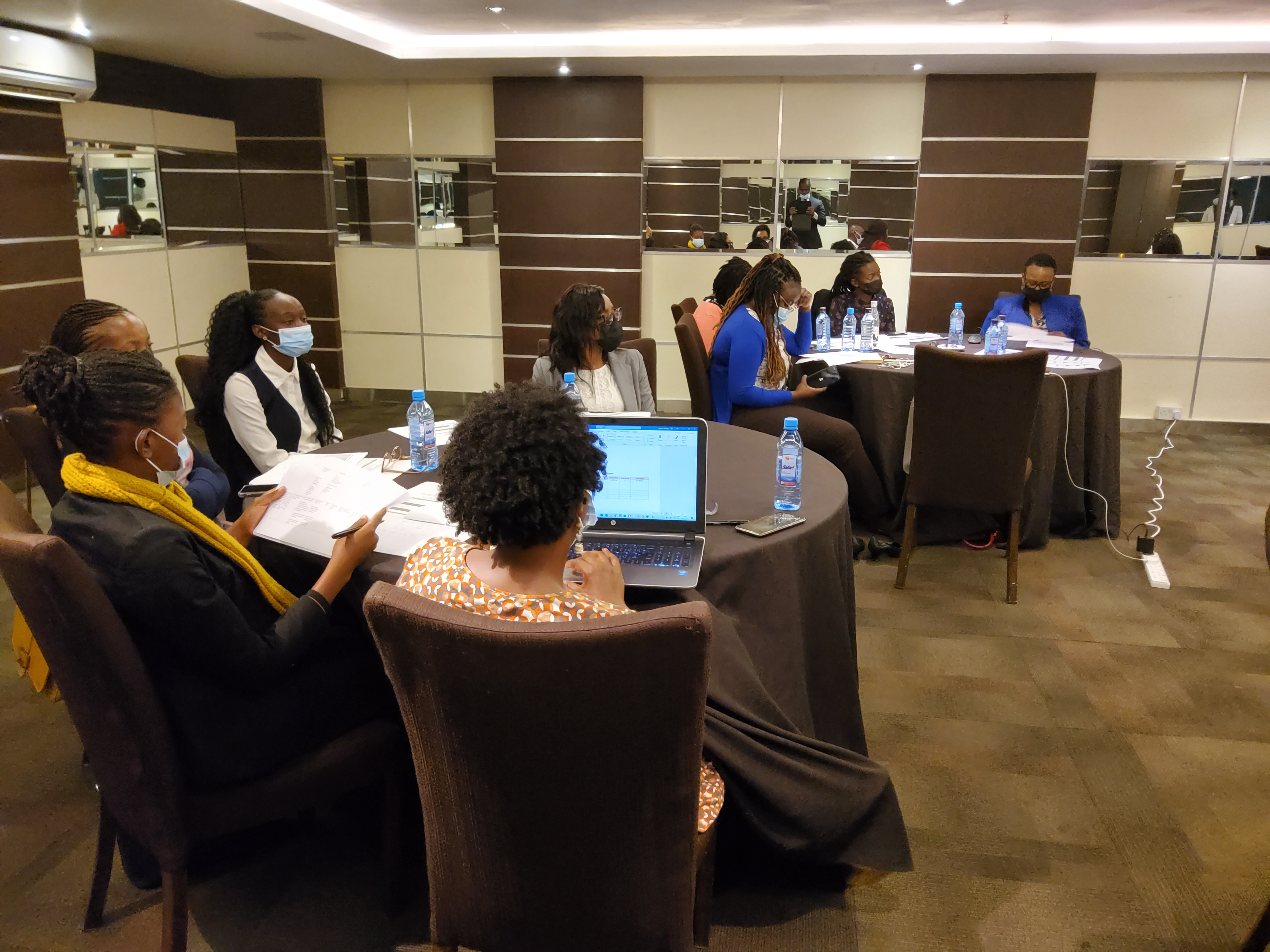Kenya: more efforts needed to ensure full implementation of key Committee's recommendations before March 2023 deadline
Published on 12 Mar 2022, 01:00 PM
In February 2022, the Centre organized a mission to Nairobi to follow-up on the implementation of key priority recommendations on violence against women, forced evictions and participation in public affairs.

Last month, UN Human Rights Committee Prof. Hélène Tigroudja and CCPR-Centre's Paola Barioli were in Nairobi, Kenya. The purpose of the visit was to follow-up on the Concluding Observations adopted by the Human Rights Committee following its review of Kenya Fourth Periodic Report in March 2021. The mission focused on the three priority recommendations that were selected for follow-up before the Committee by March 2023:
- Violence against women;
- Forced evictions, and
- Participation in public affairs.
Over a week, the delegation engaged with a variety of key stakeholders from different backgrounds to assess the status of the implementation of the Committee's recommendations and to explore future common actions to improve and accelerate implementation of the priority recommendations. The visit included meetings with civil society representatives, government officials, members of parliament, UN agencies as well as diplomatic missions.
An engaged and proactive Kenya civil society
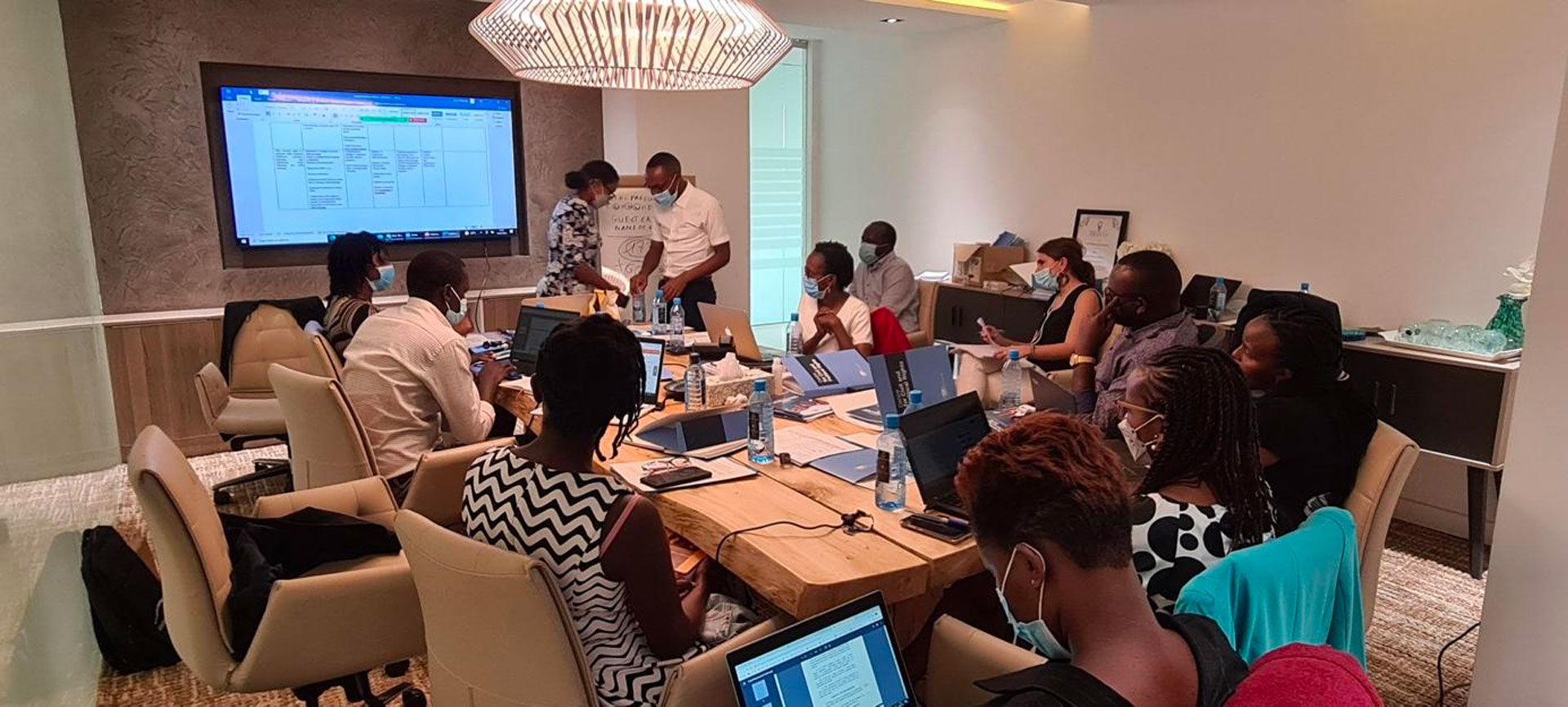
On the first day, the delegation met with leading Kenyan human rights defenders and journalists. This interaction was an excellent opportunity for both Professor Tigroudja who could hear directly from actors on the ground their opinion on the implementation process and for civil society representatives who could get a first-hand testimony on the work of the Committee and UN Human Rights mechanisms in general. "This kind of missions are unfortunately not part of our mandate, but they are indeed pivotal for the Committee to better understand realities on the ground and adapt its observations accordingly", said Prof. Tigroudja. "We can't base our review and follow-up only on the information we get from State party. Alternative narratives coming from civil society representatives are essential to complement government's inputs". Kenya has a vibrant and proactive civil society: NGOs are very active in many domains and often work in coalition to gather information and figures that can feed the work of the Committee and of other UN bodies. In order to monitor the progress Kenya government is making in the implementation of key priority recommendations, NGOs have established an implementation matrix that assess the steps taken by Kenya authorities and suggest actions civil society can take to accelerate and improve the process. "Civil society has a pivotal role to play at all stages of the review cycle and this is particularly true for the follow-up. NGOs, Human Rights Defenders and media are indispensable to make sure the Committee's recommendations do not stay in Geneva but reach key stakeholders on the ground. Civil society can help translate and disseminate recommendations while at the same time coordinate advocacy efforts to push government and parliament to follow-up on the recommendations", said Paola Barioli.
Kenya National Commission on Human Rights: a pivotal watchdog institution

On the second day of mission, the delegation met with staff and commissioners from the Kenya National Human rights Commission (KNCHR). "As an independent watchdog institution, the KNCHR plays a crucial role: it can work with both civil society representatives and government actors, acting as a link and an enabler for both. The technical experience KNCHR staff has is important to bring about concrete changes", Prof. Tigroudja pointed out. During this meeting, members of the Commission shared their view on the state of play of key priority human rights issues in the country. "From a legislative point of view, our country has good policies and texts. But many of these texts are not correctly and fully implemented on the ground. A lot still needs to be done to make sure there is a good implementation of existing laws in all three priority domains mentioned by the Committee" a KNCHR representative told us.
A multi-actor strategy to fight violence against women
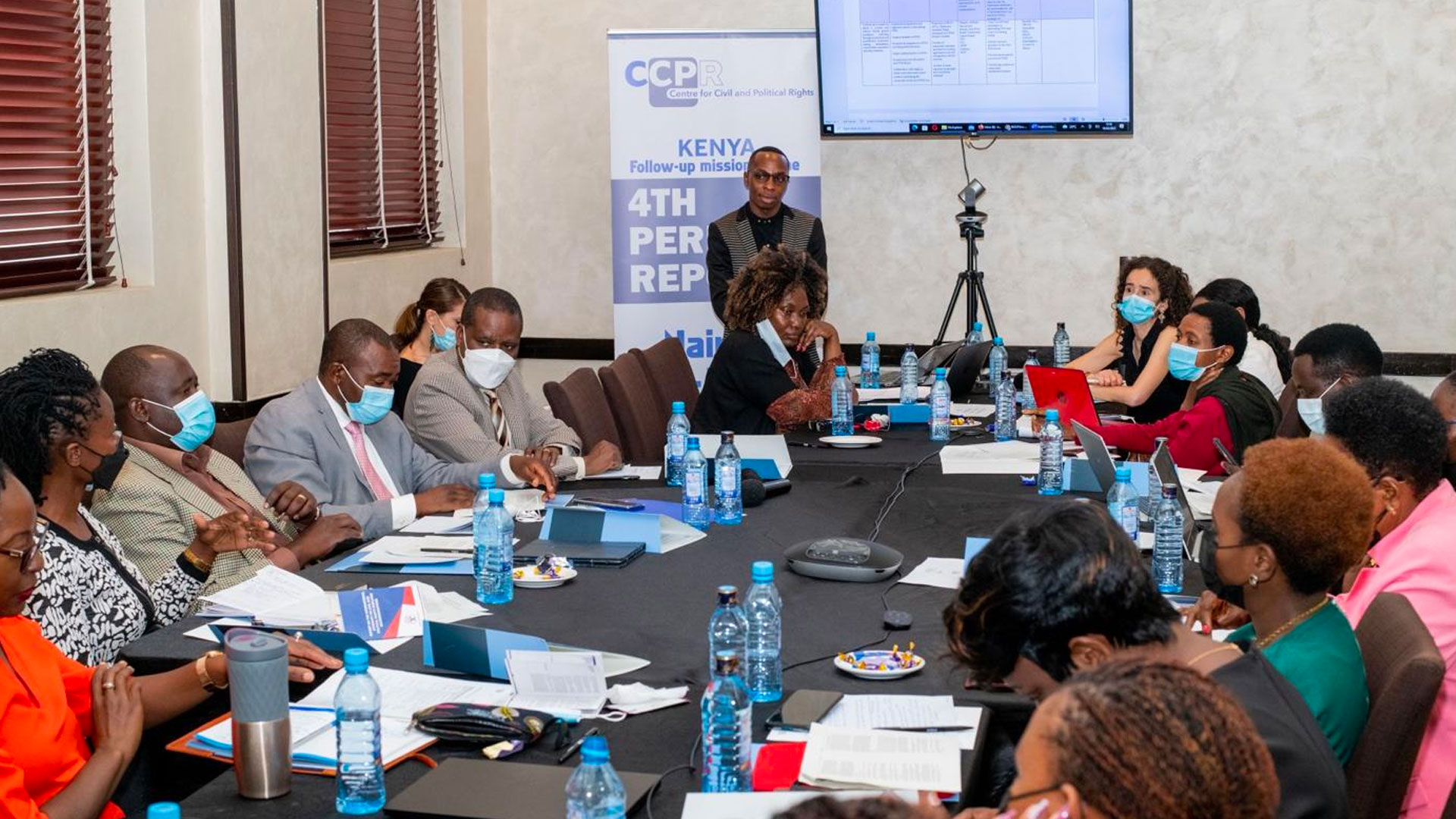
On the third day of the mission the Centre organized a roundtable bringing together key stakeholders from different backgrounds including civil society representatives, governments officials, MPs as well as members of the UN Community to discuss more specifically about the priority recommendation on violence against women. Participants discussed several topics including continuous efforts to stop female genital mutilations and harmful traditional practices including wife inheritance, ritual cleansing and child marriage. Civil society representatives stressed the need to address impunity for cases of sexual violence that happened around previous elections before the Presidential elections that are scheduled for August 2022. Participants also mentioned the need to strengthen the existing legal framework to address domestic violence, a phenomenon that has seen a sharp increase during the Covid-19 pandemic. The different stakeholders present in the room discussed possible future axes of collaboration with the ultimate aim of bringing substantial improvements before the Committee's follow up scheduled for March 2023.
State of play and way forward
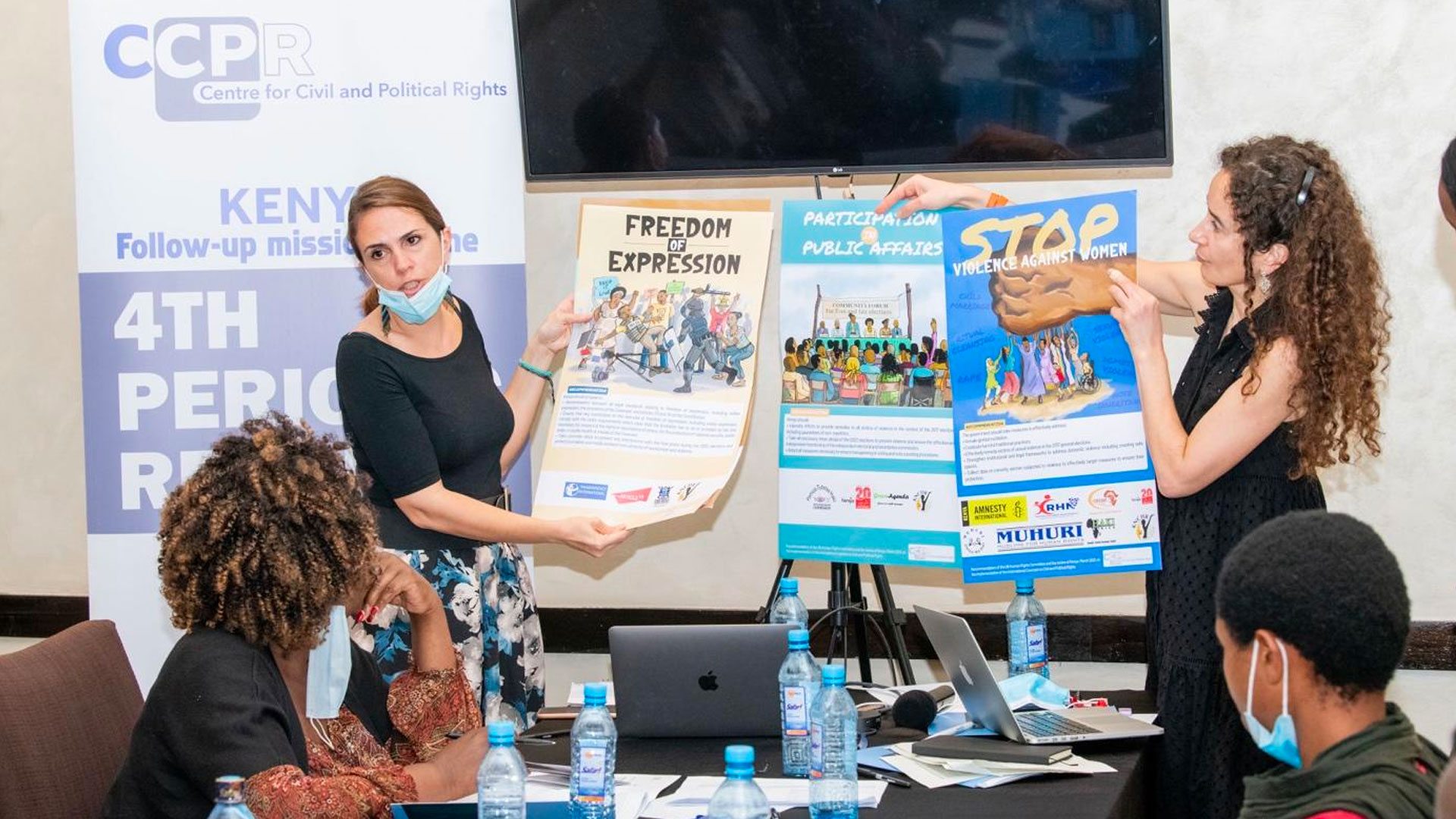
"The information I gathered from the different actors we met on the ground is extremely rich and valuable. I will make sure it feeds the Committee's follow-up process" concluded Professor Tigroudja. In the meantime, the Centre will continue to support civil society and authorities on the ground with targeted activities including sessions for civil society on how to report to the Committee and training for media on how to cover important human rights issues, especially during the upcoming electoral period. The Centre will also work with Kenya authorities, including government officials and members of the parliament to help them overcome challenges in the implementation of the Committee's recommendations. To combine efforts and avoid duplications, the Centre will also facilitate the launch of the government's own implementation matrix and ensure a civil society participation in the process






